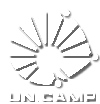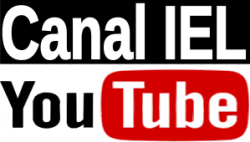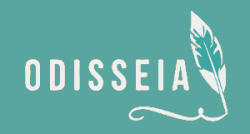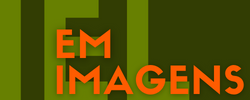Areas and Research Fields
AREAS OF RESEARCH:
1. Natural languages: form and function
2. Classical studies
3. Discourse and text analysis
4 Language and Thought
5 Language, history and knowledge
RESEARCH FIELDS:
1. Natural languages: form and function
1.1. Phonetics and Phonology
1.2. Grammar
1.3. Semantics and Pragmatics
1.4. Sociolinguistics
1.5. Indigenous Languages
1.6. Historical Linguistics
2. Classical Studies
2.1. Studies of ancient Greek language and texts
2.2. Studies of Latin language and texts
3.1. Discourse analysis
3.2. Text linguistics
3. Discourse and Text Analysis
3.1. Discourse analysis
3.2. Text linguistics
4. Language and Thought
4.1 Psycholinguistics
4.2. Neurolinguistics
4.3. Language Acquisition
5. Language, History and knowledge
History of Linguistic Ideas
AREAS OF RESEARCH AND RESEARCH LINES:
1. Natural languages: form and function
1.1. Analysis, description and documentation of natural languages
Syllabus: The purpose of this line of research is to encourage and bring together projects that focus on the description, analysis and documentation of natural languages from different theoretical-methodological standpoints and with special emphasis on indigenous languages. It also includes studies concerned with the evaluation and development of linguistic theories, such as those that take into account the historical and socio-cultural context in which languages operate. Comparative, historical and typological investigations are also part of this line of research, together with studies on research and analysis of sources and documentation of such languages, as well as studies that address linguistic planning and bilingual education.
1.2. The nature of meaning
Syllabus: The purpose of this line of research is to encourage and bring together projects that focus on the study of linguistic meaning processes. Its intent is to bring together projects whose development are based on different theoretical-methodological standpoints to pave the way for a consistent debate involving different opinions that may encourage discussions in the field that studies the meaning of language so as to generate innovative proposals. Therefore, the purpose of this line of research is to describe the meaning of different languages, notably those used in Brazil, as well as to foster a theoretical and methodological reflection that may lead to the development of the disciplines concerned with the study of meaning.
1.3. Generative syntax of natural languages
Syllabus: The purpose of this line of research is to bring together projects focused on the synchronic, diachronic and acquisition studies of the syntactic properties of a given language or on the syntactic phenomena specific to different languages according to the Principles and Parameters Theory of Generative Grammar.
1.4. Language, culture and society
Syllabus: The purpose of this line of research is to bring together projects focused on the study of the linguistic phenomenon in its social context. Along these lines, considerations related to the social, historical and cultural order are crucial to the observation, description and analysis/interpretation of the speech-related activities. As a result, the activities developed under such a title take language as a social practice which is, therefore, inseparable from the speaker and the group to which he/she belongs.
1.5. Sound analysis and modeling of natural languages, from grammar to physics
Syllabus: The purpose of this line of research is to bring together projects focused on taxonomic and/or hypothetico-deductive studies (whether logical-formal or numeric) of the sound-related aspects of natural languages with particular focus on: their functions in the language grammar structures across the world; their acquisition; their pathological deviations; as well as their reproduction/simulation/decoding in the development of speech technology.
2. Classical studies
2.1. Greek and Roman languages and literature
Syllabus: The purpose of this line of research is to bring together projects focused on the study of Greek and Roman language and culture. It includes projects related to the linguistic studies of Old Greek and Latin and the translation of the exegesis of any text written in those languages.
3. Discourse and text analysis:
3.1. Language, text and discourse
Syllabus: The purpose of this line of research is to encourage and bring together projects related to spoken language, text and theory studies. The concepts of language, text and discourse, in the different theoretical perspectives adopted in different research projects are used to clearly state the conditions of enunciation, issues related to the text processing, textualization principles and discursiveness factors.
3.2. Language, subject, history
Syllabus: The purpose of this line of research is to bring together projects focused on the study of the constitutive elements in the relationships of the subject, language and history, demonstrating that meanings are ideologically-produced. The projects comprising this line of research assume a materialist, discursive analysis perspective. They break away from the content-based approaches by decentering the notion of subject, by recognizing the relationship between ideology and unconsciousness, by the relativization of the autonomy of the language, and by conceiving history as a social practice constantly demanding meanings when confronted with reality.
3.3. Language and psychoanalysis
Syllabus: The purpose of this line of research is to encourage and bring together projects that, by using the psychoanalytical theory as their theoretical reference - and for the intent of linguistic studies -, aim at considering the consequences of the hypothesis that takes the unconsciousness to have a language structure, having as its axis the study of how the subjectivity is structured through language.
4. Language and Thought
4.1. Brain, mind and language
Syllabus: The purpose of this line of research is to encourage and bring together projects focused on linguistic, pragmatic and discursive processes related to language, brain and cognition, such as those related to aphasia, neurological degeneration and deafness, bringing together projects with several aspects related to the discussion of neurolinguistic semiology, to the study of psycholinguistic processes involved in the acquisition and pathology of language, and to the study of the relationship between what is normal and what is pathological in the functioning of language and human cognition. This line of research uses Linguistics as an observation center of linguistic and cognitive phenomena taking place in natural situations (such as aphasias), as well as those which required experimental methods in order to be observed (such as the perception of the written and spoken languages).
4.2. Children’s speech and writing
Syllabus: The purpose of this line of research is to bring together language acquisition projects, including sign language and the so-called language acquisition-related disorders or pathologies. This line of research also comprises works on initial writing processes, the relationship between drawing and writing, and researches based on clinical phenomena. This line of research takes a stand that favors children's speech as a question mark directed both to the Linguistic and the development theories.
5. Language, history and knowledge
5.1. Development of linguistic theories and methodologies
Syllabus: The purpose of this line of research is to bring together projects aiming at the study of the history of the linguistic theories and methodologies. Such projects focus on the analysis of the processes for the development of knowledge about the language produced throughout the history of thought, regardless of the discipline on which such knowledge was based. These projects aim at mastering linguistics as a discipline that is particularly relevant in the history of science. Priority is given to the political and social conditions under which such knowledge was produced and how they are related to the development of the language itself.
























